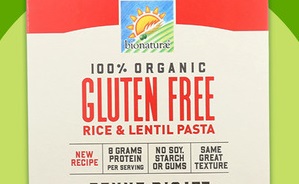Which Meal Plan is Right? Good Tips & Ideas
Specialty Diets: What Are They and How Do They Differ?
In recent years, there has been a growing interest in specialty diets. These diets are designed to address specific health concerns or goals, such as weight loss, improved gut health, or increased energy levels. While there are many different specialty diets available, some of the most popular include paleo, keto, gluten-free, plant-based, and organic.
The paleo diet is a popular diet that is based on the eating habits of our hunter-gatherer ancestors. The diet excludes processed foods, grains, legumes, dairy, and refined sugar. Instead, it focuses on whole, unprocessed foods such as meat, fish, vegetables, fruits, nuts, and seeds.
The paleo diet has been shown to have a number of health benefits, including weight loss, improved blood sugar control, and reduced inflammation. However, it is important to note that the paleo diet is not suitable for everyone. If you have any underlying health conditions, it is important to talk to your doctor before starting the paleo diet.
The keto diet is a low-carb, high-fat diet that has been shown to be effective for weight loss and improving blood sugar control. The diet works by forcing the body to burn fat for energy instead of carbohydrates. This is done by restricting carbohydrate intake to below 50 grams per day.
The keto diet can be difficult to follow, but it can be very effective for people who are looking to lose weight or improve their health. However, it is important to note that the keto diet is not suitable for everyone. If you have any underlying health conditions, it is important to talk to your doctor before starting the keto diet.
The gluten-free diet is a diet that excludes gluten, a protein found in wheat, barley, and rye. Gluten can cause an autoimmune reaction in people with celiac disease, a chronic condition that damages the small intestine. The gluten-free diet is also a good choice for people with gluten intolerance, which can cause symptoms such as bloating, diarrhea, and fatigue.
The gluten-free diet can be difficult to follow, but it is becoming increasingly easier as more and more food manufacturers are offering gluten-free options. If you are considering following a gluten-free diet, it is important to talk to your doctor to make sure that it is right for you.
A plant-based diet is a diet that excludes all animal products, including meat, fish, dairy, and eggs. Plant-based diets can be either vegan or vegetarian. Vegan diets exclude all animal products, while vegetarian diets exclude meat but may include dairy and eggs.
Plant-based diets have been shown to have a number of health benefits, including weight loss, reduced risk of heart disease, and improved blood sugar control. Plant-based diets are also a good choice for the environment, as they require less land and water to produce than animal products.
An organic diet is a diet that consists of foods that are produced without the use of synthetic pesticides, herbicides, fertilizers, or other chemicals. Organic foods are grown using natural methods that are designed to protect the environment and human health.
Organic foods can be more expensive than conventional foods, but there are a number of reasons why people choose to eat organic. Some people believe that organic foods are healthier than conventional foods. Others believe that organic farming practices are better for the environment.
Which Diet is Right for You?
The best diet for you is the one that fits your individual needs and goals. If you are not sure which diet is right for you, it is important to talk to your doctor or a registered dietitian. They can help you assess your individual needs and develop a plan that is right for you.
It is also important to remember that there is no one-size-fits-all approach to diet and nutrition. What works for one person may not work for another. It is important to experiment and find what works best for you.




